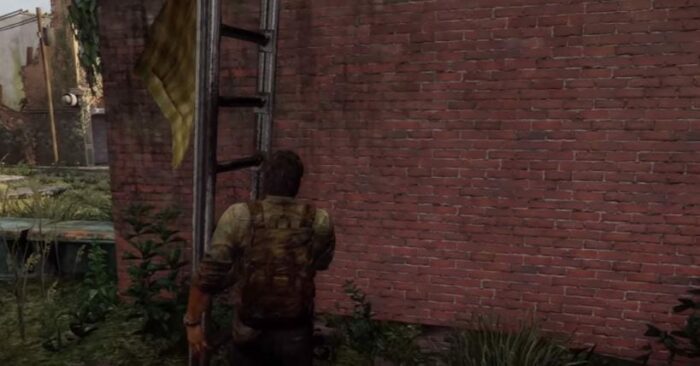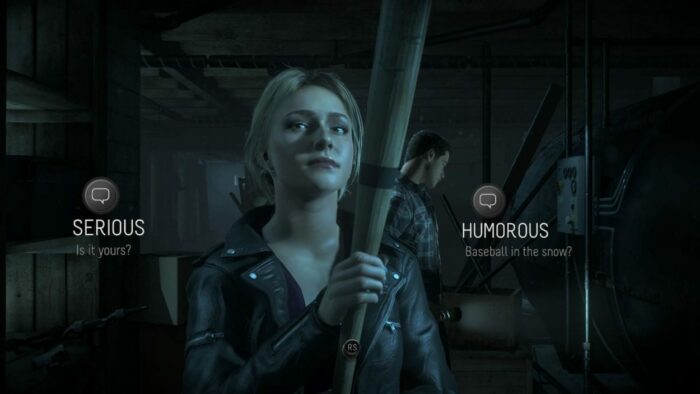Pet peeves. We all got them. Hearing people chew with their mouths open. Styrofoam scraping against anything. Using your blinker if you live in Massachusetts. The possibilities for peoples’ pet peeves are nearly limitless, and this applies to gaming as well. I love video games and I’m assuming if you’re reading this that you love video games too. Otherwise, what are you doing here?
Anyways, I have quite a few gaming pet peeves, but I’m going to focus in on one in particular today: games with excessively long animations for simple things. This isn’t focusing on games with specifically timed animations such as in Monster Hunter World, where the relatively long time it takes to do something ties in directly with the gameplay. No, I’m talking about games that take the time to show the gamer every excruciating step of doing something simple like climbing or ducking under something.
I feel as though it’s easier to describe with an example. In one of my absolutely favorite punching bags, The Last of Us has players regularly solve “puzzles” that consist of nothing more than finding a ladder and putting it in the proper spot. These can often take several minutes though, due to how it’s animated. Rather than just picking the damn ladder up, the game forces you to stand directly over it, at which point it shows Joel bend down, grab the ladder, and stand back up. This takes several seconds. Then you sloooooooooooowly walk it over to wherever it needs to go, at which point Joel stops, kneels down, and places it again. Sometimes, if you’re extra lucky, he helps Ellie with it, which takes several more seconds.

It’s this kind of time waste that I’m referring to in this article. Many, many games today use their fantastic animations to show the most menial of actions, and to me, it’s completely pointless. It’s why I can’t get behind many of Rockstar’s games. People freak out and comment on how detailed the games are, like how the flip flops Michael can wear in GTAV actually flip and flop like they would in real life. Is it an impressively detailed technical achievement? Sure, I guess. It probably took a stupid amount of effort to get this working, too. The problem is that it doesn’t affect the game in any way. The game still has clunky controls and simplistic shooting.
That example at least doesn’t directly eat up the player’s time like it does in The Last of Us. But that game isn’t the only one guilty of doing this. I recently played through Until Dawn and found the title to be enjoyable enough despite its generic plot. A lot of the appeal, obviously, comes from trying to ensure the survival of everyone, or at least having control over who lives and who dies. The best parts of the game are these moments of choice that directly impact the outcome of the story. Of course, there are slower gameplay sections too that play out like point and click adventure titles.

A big problem with these sections is that the player is asked to explore the environments to find token items that unlock the way forward. To do this, you move the character around and they mosey about without a care in the world. It’s slow as hell. And when you pick up an item, you can’t just examine it. Instead, you have to use the touch pad on the PS4 controller to open a drawer, or use one of the sticks to fully examine the item from every angle just to possibly find a clue. It takes a process that used to be instantaneous, and needlessly draws it out, once again eating up time in a way that frustrates.
Much of the time, this is all done in the name of immersion. That is, the developers think that showing the player every excruciating step of doing some simple task will somehow draw them in to the world more, or make them forget they’re playing a game. Sometimes this actually pays off. The first person Resident Evil 7 or last year’s Resident Evil 2 remake used these kinds of animations to often lull the player into a false sense of security. For instance, in 7, you might open a door slowly, only for one of the game’s antagonists to be waiting on the other side, startling you and launching you into conflict. In Resident Evil 2, there’s a great scene early on where, after arriving at the police station, you have to crawl under a semi-functioning blast door. It shows the player either Leon or Claire slowly crouch down, crawl under in the darkness, and peek their head into the dark hallway.
The reason this emphasis on slow animation works here is because it ties directly into the atmosphere of the games. In RE2, that slow reveal of the pitch black hallway covered in blood and populated by zombies effectively builds the dread within the player. Same in 7. Horror is all about surprising and unsettling the player, and knowing there’s something bad on the other side of a blast door makes that slow crawl underneath all the more unnerving and scary.

At the very least, games like The Last of Us show off what they can do with their long animations. Other games don’t even have an excuse. In Dragon Quest VII, the player must go around and bring a bunch of islands back into existence through time travel shenanigans. Don’t ask, it’s a JRPG.
The game is a middling entry in the series in my opinion mostly because, for all its creativity in the individual stories it tells, it does not respect the player’s time in ways both big and small. There is a lot of running around between objectives, and often times many stories end abruptly and in an unsatisfying way. This penchant for time-wasting extends to the micro scale as well. Many times during cut scenes, a character might want to give something to the party, but they’re facing away from them across the room. So they have to turn around, maybe say one line of dialogue, then proceed to walk slowly all the way across the room, stop in front of the player, then do an animation where they hold their hand out and give the player whatever it is, then walk all the way back across the room. Unlike other games in this article, Dragon Quest VII is not a technically impressive game, so the animations are super basic to begin with, so the fact that simple things like this take so long is immensely frustrating.
I don’t mind slow paced games, friends. I can appreciate a nice, long RPG, or a thoughtful walking simulator as long as they engage me in some way. The thing is, though, that there’s a fine line between being slow paced and just being pointlessly long. The excessive animations I’ve discussed here often take several seconds, which isn’t a lot of time in the grand scheme of things. The problem is that long animations are added in solely because the developers want to show off what they are capable of, except the game would be paced better, and nothing would be lost from eliminating these animations altogether.
I guess what I’m trying to say is that the stupid ladder “puzzles” in the Last of Us really just suck.


Great write up. I’ve been saying this about Red Dead 2. I ended the game early and traded it in because it stole so much of my time with ridiculous, drawn out motions. It’s definitely a thing.